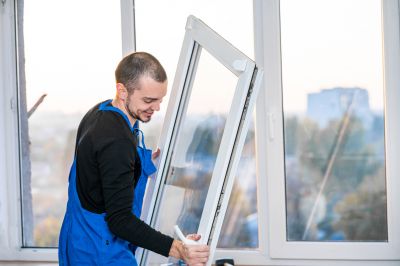Leading Storm Restoration Gear For Fast and Reliable Repairs
Choose from high-performance products that support quick response and effective restoration following storm damage.
 In the aftermath of a storm, restoring your property in Plant City, FL requires a comprehensive approach that addresses various types of damage. From roofing and siding repairs to water extraction and structural reinforcement, having the right products on hand can facilitate a more efficient restoration process. Storm restoration products are designed to withstand harsh weather conditions, prevent further damage, and help restore safety and comfort to affected areas. Whether dealing with wind damage, heavy rain, or fallen debris, selecting appropriate tools and materials is crucial for effective recovery.
In the aftermath of a storm, restoring your property in Plant City, FL requires a comprehensive approach that addresses various types of damage. From roofing and siding repairs to water extraction and structural reinforcement, having the right products on hand can facilitate a more efficient restoration process. Storm restoration products are designed to withstand harsh weather conditions, prevent further damage, and help restore safety and comfort to affected areas. Whether dealing with wind damage, heavy rain, or fallen debris, selecting appropriate tools and materials is crucial for effective recovery.
Top Overall Option
Heavy-Duty Weatherproof Tarp
A versatile, durable tarp designed to cover damaged roofs, windows, or siding, providing immediate protection from the elements. Made from high-strength, waterproof materials, it is suitable for emergency coverage and temporary repairs, helping to prevent further water intrusion and structural damage during storm recovery efforts.
Types of Products For Storm Restorations
Roofing Repair Materials
Includes shingles, sealants, and underlayment designed for repairing or patching storm-damaged roofs.
Weatherproof Tarps
Heavy-duty tarps used to temporarily cover damaged areas and prevent water penetration.
Water Extraction Equipment
Portable pumps and wet/dry vacuums to remove standing water after flooding or leaks.
Dehumidifiers
Devices that reduce indoor humidity levels to prevent mold growth and further structural issues.
Structural Reinforcement Products
Includes brackets, braces, and connectors for stabilizing weakened structures.
Siding Repair Kits
Materials and tools for fixing or replacing storm-damaged siding panels.
Sealants and Caulks
Weather-resistant sealants for sealing gaps and cracks caused by storm damage.
Emergency Lighting
Portable lights and flashlights to ensure visibility during power outages.
Safety Gear
Protective equipment such as gloves, helmets, and goggles for safe restoration work.
Debris Removal Tools
Tools including axes, shovels, and wheelbarrows for clearing fallen branches and debris.
Insulation Repair Materials
Foam and fiberglass insulation for replacing damaged insulation in walls and attics.
Paint and Surface Coatings
Weather-resistant paints and coatings for restoring exterior surfaces after storm damage.
Electrical Repair Kits
Tools and components for safely restoring electrical systems affected by storms.
Foundation Repair Products
Materials for addressing cracks or shifts in the foundation caused by storm events.
Roof Ventilation Products
Vents and fans to improve airflow and prevent moisture buildup after storm damage.
Popular Choices
Widely used for quick coverage of damaged roofs and windows, offering reliable temporary protection.
Commonly employed to remove excess water from flooded areas, facilitating quicker drying.
Popular for controlling indoor moisture levels after water intrusion, reducing mold risk.
Frequently used to patch leaks and seal cracks in storm-damaged roofing materials.
Essential safety gear for workers during storm cleanup and repair activities.
Commonly selected for clearing fallen branches and storm debris from properties.
Popular for providing illumination during repairs in low-light conditions.
Frequently used to seal gaps around windows and doors after storm damage.
Often chosen for quick fixes on damaged exterior siding panels.
Commonly used for restoring insulation in affected walls and attics.
Popular for preventing water entry in vulnerable areas during storms.
Often used to protect electrical outlets from water and debris.
Frequently installed to improve ventilation and reduce moisture after storms.
Proper storm restoration involves assessing the damage, securing vulnerable areas, and implementing repairs that ensure long-term durability. This often includes the use of specialized tarps, sealants, and weather-resistant materials that can serve as temporary or permanent fixes. Additionally, water mitigation products such as pumps and dehumidifiers play a vital role in preventing mold growth and structural deterioration caused by excess moisture. Having a well-stocked kit of versatile, high-quality storm restoration products can make the difference between a quick recovery and prolonged property issues.
In the context of Plant City, FL, where storms can be unpredictable, it is beneficial for homeowners and restoration professionals to maintain a selection of reliable products tailored for local weather challenges. Investing in durable, easy-to-use equipment and materials can streamline the restoration process, reduce costs, and enhance safety. Remember that each storm event may require different products or combinations thereof, so understanding the variety of available options helps in making informed decisions during emergency situations.
Key Buying Considerations
- Assess the specific type of storm damage to determine the most appropriate products.
- Choose durable, weather-resistant materials suitable for the local climate in Plant City, FL.
- Consider the size and scope of the damaged area to select adequately sized equipment and supplies.
- Ensure safety gear and protective equipment are included to facilitate safe restoration work.
- Look for products that are easy to handle and install, especially for temporary repairs.
- Evaluate the compatibility of repair materials with existing structures and surfaces.
- Opt for versatile products that can serve multiple purposes during the restoration process.
- Check for availability of replacement parts or additional supplies for ongoing repairs.
- Prioritize products with clear instructions and user-friendly features for quick deployment.
- Consider environmental conditions such as humidity and potential mold growth when selecting moisture control products.
- Review product specifications to confirm they meet necessary safety and quality standards.
- Plan for future storm preparedness by selecting reliable, long-lasting repair solutions.
- Evaluate the cost-effectiveness of products in relation to their durability and performance.
- Research local suppliers or distributors familiar with storm restoration needs in Florida.
- Ensure products comply with any local building codes or regulations related to storm repairs.
